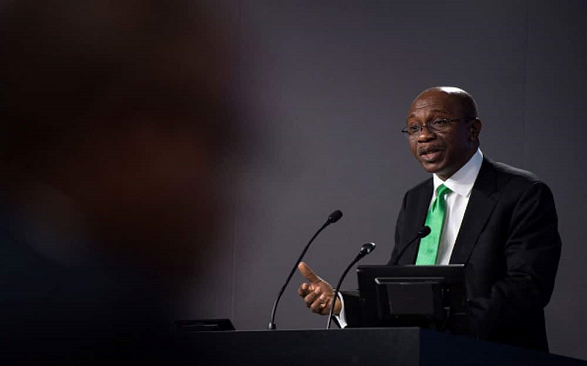Introduction
The single story is a dangerous story because it destroys, sometimes slowly but surely.
In the Central Bank of Nigeria’s (CBN) response to the reactions that followed its directive on cryptocurrency in Nigeria in February, the CBN felt it needed to provide further justifications about its position to the general public. The CBN started by introducing what cryptocurrencies means to “those who are not conversant with the universe of cryptocurrencies” as follows:
“Cryptocurrencies are digital or virtual currencies issued by largely anonymous entities and secured by cryptography”. Fair enough. But the CBN did not stop there. The CBN went on to drop a statement that will perhaps turn out to be one of the best illustrations of the dangers of a single story in the decade:
“Cryptography is a method of encrypting and hiding codes that prevent oversight, accountability, and regulation”.
You read that right! Cryptography is a method of encrypting and hiding codes that prevent oversight, accountability, and regulation.
Speak of CBN calling a dog a bad name just to hang it. But only to end up hanging itself. Precisely. I will show you just how.
First, what does ‘cryptography’ really mean?
According to Encyclopedia Britannica, ‘cryptography’ means the “practice of the enciphering and deciphering of messages in secret code in order to render them unintelligible to all but the intended receiver. Cryptography may also refer to the art of cryptanalysis, by which cryptographic codes are broken. Collectively, the science of secure and secret communications, involving both cryptography and cryptanalysis, is known as cryptology. The principles of cryptography are today applied to the encryption of fax, television, and computer network communications. In particular, the secure exchange of computer data is of great importance to banking, government, and commercial communications.”
Absolutely. Banks and governments also use cryptography to secure sensitive communication, including the CBN most recently.
Oh yes, CBN’s eNaira uses cryptography!
Today the same CBN who defined ‘cryptography’ as “a method of encrypting and hiding codes that prevent oversight, accountability, and regulation” has introduced the eNaira, a central bank digital currency (CBDC) which relies on cryptography.
But what is the CBN using cryptography for?, you might ask.
Well, If CBN’s definition of cryptography is anything to go by, the CBN must be using cryptography to hide codes that prevent oversight, accountability, and regulation.
But from whom?
From the Federal Minister of Finance? No. From the Nigerian presidency? No. Then the CBN must be trying to hide from Big Brother Nigeria. Of course not, CBN is a Big Brother Nigeria in its own right!
The CBN is not hiding from anyone’s oversight or trying to avoid being accountable to anyone, talk more of avoiding regulation!
So what or whom is the CBN hiding from?
Nothing and no one, except perhaps from CBN’s own shadow.
Here it is: As far as the eNaira is concerned, CBN has applied cryptography in order to achieve exactly what cryptography is truly meant for:- secure exchange of sensitive information through encryption in order to prevent them from being compromised by unauthorized persons. It is all about safety and security in an environment where the risk of data or information breach is present. Think of it as advanced cybersecurity in a digital world.
It is the dangers of the single story that has caught up with the CBN.
What does Chimamanda Adichie teach about the dangers of the single story?
Chimamanda Ngozi Adichie’s ‘The Danger of a Single Story’, Ted Talk, July 2009, exposed the negative influences that a “single story” can have on society.
According to Adichie, simple misunderstandings or one’s lack of knowledge of people, things, or ideas often result in single stories. Apart from simple misunderstandings or ignorance, malicious intentions also result in single stories. This malice is usually meant to suppress people or contrary ideas due to prejudice. With malicious intent, the single-story teller may deliberately communicate incomplete information or exaggerate a fact. Quickly, stereotypes are formed. This is because people are naturally “impressionable and vulnerable” when it comes to single stories. As pointed out by Adichie, media and literature are often used to impress the members of the public with the single story. And this is how people end up generalizing and making assumptions about people, things, and ideas. For instance, responding in November to a question by an Arise TV presenter bordering on the reason behind the CBN directive prohibiting cryptocurrency in Nigeria’s banking and financial system, Godwin Emefiele, Governor of the CBN, asserted that “cryptocurrency is a product embedded in high level of illegality”:
“We feel a substantial portion of the transactions or a percentage happening there are illegal transactions. Look at it this way; what is there to hide? Why is it encrypted? Why are the transactions so hidden that if I conduct a transaction and a regulator says he wants to see the nature of the transaction or security agencies—they want to see the nature of the transaction, those cannot be encrypted to let people know what happened? It means there is some high level of illegality that is associated with it.”
This is the single story about cryptocurrencies today.
Governor Emefiele’s single story above is contrary to facts and figures, and it is a result of one of these three factors: his simple misunderstanding of cryptocurrency, his lack of knowledge of cryptocurrency, or his malicious intentions. Fact and figures: Of the $1 trillion worth of cryptocurrency transactions that took place in 2019, only 1.1% of them are illicit. So contrary to Governor Emefiele’s single story, a substantial portion of cryptocurrency transactions are legal transactions. In fact, Nigeria has one of the lowest rates for illicit cryptocurrency transactions in the world.
Also, Adichie tackles the effects of power on stories. With power, single stories are not only spread faster and wider, but also make the ideas they communicate persist. Through controlling “how [stories] are told, who tells them, when they’re told, [and] how many stories are told”, Adichie states that power can be used for malintent. Indeed, power can be used, has been used, and continues to be used to manipulate people’s understanding of other people, ideas, or things. Essentially, “to create a single story”, the malicious and the powerful “show a people”, thing, or idea “as one thing, as only one thing, over and over again, and that is what they become”. Indeed, Governor Emefiele never fails to show Nigerians that cryptocurrency is only one thing: criminality. And he shows this over and over again. Appearing before the Joint Senate Committee on Banking, Insurance and Financial Institutions and Capital Market and ICT in February, Governor Emefiele argued that:
“[c]ryptocurrency is used to describe the activities of traders in an electronic dark world where transactions are extremely opaque, not visible and not transparent. These are people who deal in transactions that do not want to be trailed.”
This is the single story about cryptocurrencies today.
Again, Governor Emefiele’s single story above is contrary to facts. Cryptocurrency transactions are not extremely opaque, invisible, and do not lack transparency. In fact, it is quite the opposite for most cryptocurrencies such as bitcoin, etheruem, litecoin, and thousands of others out there. This is because most cryptocurrencies are built on public blockchains. And the cornerstone of public blockchains are openness, visibility, and transparency, as well as security and traceability, beating fiat currencies pants down. Besides, since most cryptocurrency users globally including Nigeria generally prefer centralized exchanges over decentralized exchanges, the result is that courts, regulators, and law enforcement agencies can always require these centralized exchanges such as Binance, Bundle, Buycoins, Luno, NaijaCrypto, Quidax, and many others to share users’ KYC in accordance with the provisions of the law. This is possible because like banks and other financial institutions, these centralized exchanges apply self-regulation which involves KYC/AML compliance. Besides, cryptanalysis tools are now available for cryptocurrency investigations.
So again, contrary to Governor Emefiele’s single story, most cryptocurrencies are not “extremely opaque, invisible, and all that, except we speak of privacy coins. All that regulators and law enforcement agencies need to do is collaborate and also acquire capacity. Cryptocurrencies cannot be simply wished away. They are here to stay. And they will be here for a long time until the next innovation. The earlier we understand them and regulate them, the better for all of us.
This is why to treat the misconceptions, misunderstandings, and misgivings about cryptocurrencies in the world today, we must keep reiterating the need to spread diverse stories; the full story in opposition to focusing on the single story.
Remember to always tell the full story! Always.
So next time the CBN or anyone, no matter how powerful, tells you that cryptocurrencies do not have a place in our banking and financial system because they are or can be used for fraud, money laundering, and financing terrorism, remember the single story. Remember to tell the full story—the full story that although the CBN is not wrong, up to 98% of cryptocurrency transactions globally relate to legitimate transactions; that cryptocurrencies are used for legitimate remittances, investments, and trading of goods and services; and that because of the design of most cryptocurrencies, they are transparent and they are traceable with the right monitoring tools. Besides, part of the full story is that fiat currencies are also used for fraud, money laundering, and financing terrorism too, notwithstanding the regulations fiat transactions have been subjected since inception.
Cryptocurrencies call for collaboration, inclusion, and regulation, not the single story.
Say NO to the single story.
When one says NO to the single story, it allows one to “regain a kind of paradise” and see people, things, or ideas as more than just one incomplete idea.
When one says NO to the single story, it allows one to see through the ignorance or malice that often feeds single stories and then attack it with knowledge or truth; openness and courage.
When one says NO to the single story, it allows one to appreciate how power can be used to drive the single story far and wide and help us respond with the force of good.
The single story does only one thing: it blinds society.
On the other hand, the full story opens society’s eyes, helping us to walk the right path to the future we must secure.
Senator Ihenyen is Lead Partner at Infusion Lawyers where he heads the Blockchain & Virtual Assets Group. He is the President of Stakeholders in Blockchain Technology Association of Nigeria (SiBAN), and the General Secretary of Blockchain Industry Coordinating Committee of Nigeria (BICCoN) and Fintech Alliance Coordinating Team (FACT). Founding Editor of CAB, Senator writes and advises on blockchain & crypto law, policy, and regulations. senator@infusionlawyers.com





5 Comments
EstherWealth
Amazing articles. Full of lights.
Omuli Iwere
The birth of Cryptocurency is a direct response to the failing of the current banking system and the need to bring some form of financial freedom to depositors. I am therefore not surprised that the Central Bank of Nigeria (CBN) will act in such a manner as the banking sector largely sees crypto as a threat to the Banking System. I agree with you that some of these crypto transactions have footprints and can be obtained as most crypto purchase or settlement companies carry out KYCs on their customers, so why see it as a dark hole? Finally, I love the fact that same definition which is used by the CBN for crytocurrency has come back to bite the CBN on their eNaira project, as it shows how wrong such definition is.
OLA
well explained. Thank you for this.
http://buy-backlinks.rozblog.com/
Having read this I thought it was very enlightening. I appreciate you finding the time and effort to put this article together.
I once again find myself spending a lot of time both reading and leaving comments.
But so what, it was still worthwhile!
Feel free to visit my blog http://buy-backlinks.rozblog.com/